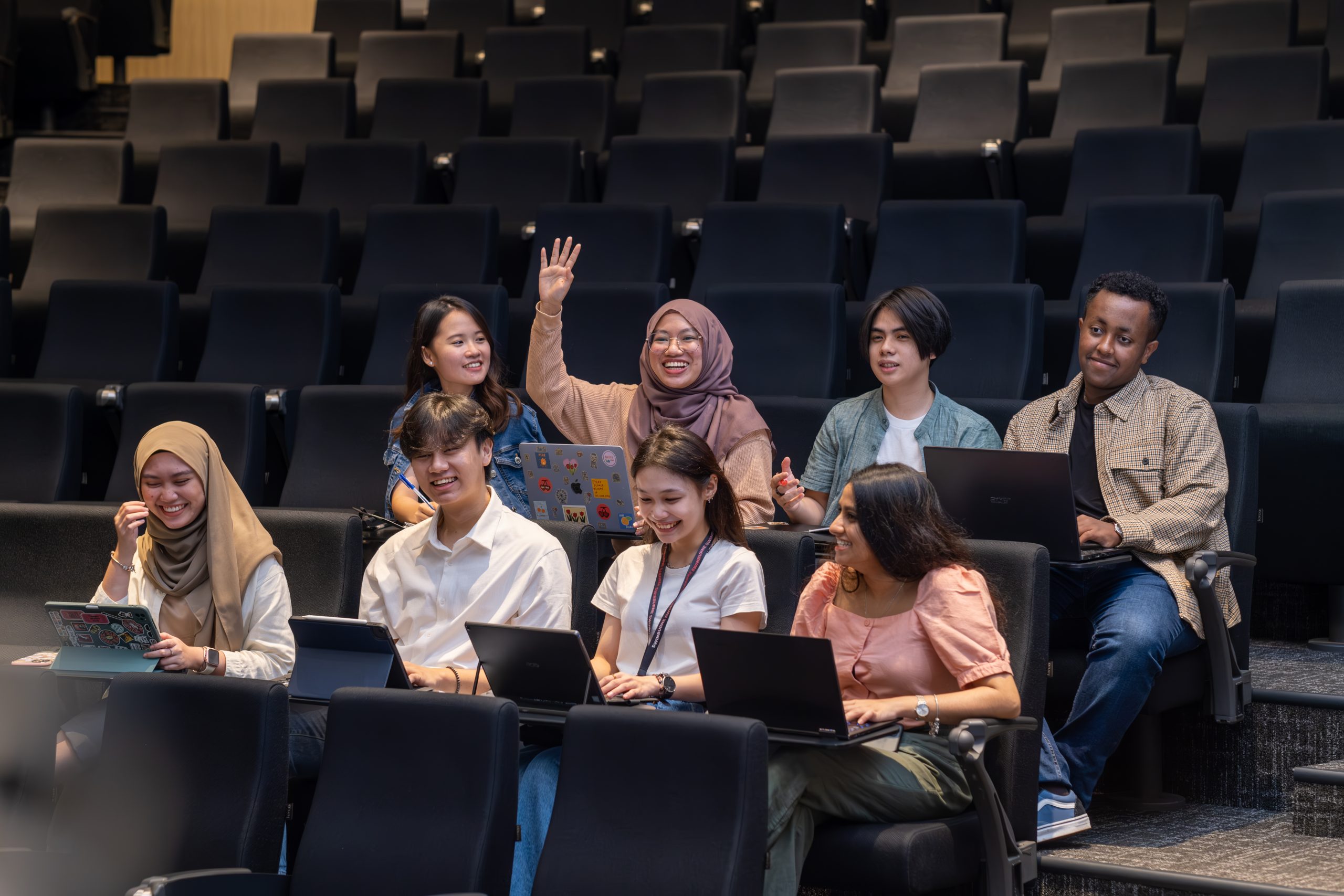As we commemorate International Students’ Day on November 17, we reflect on the pivotal role that higher education plays in shaping the future of youth.
Access to higher education should not be for just a few.
Higher education should be made available to all. It should be a transformative force that empowers individuals, a means to help build communities, and a movement that fosters sustainable development.
Higher Education for Sustainable Development
Higher education is the cornerstone of sustainable development. It is the catalyst for economic, social, and environmental progress. The United Nations (UN) has underscored the integral role of higher education and how it can help nations achieve their sustainable development goals. The intergovernmental organisation recognises that higher education is a powerful instrument to eradicate poverty, promote gender equality, and encourage inclusive societies.
Through higher education, youths will acquire the knowledge and skills, as well as the critical thinking skills, these future leaders need to address the complex global challenges of the future.
Whether it is climate change, social inequality, or technological advancements, educated youths are better equipped to contribute meaningfully to developing innovative and sustainable solutions.
Empowered Youths are Agents of Change
Providing youths with access to higher education is more than just imparting knowledge. It is also about empowering them as agents of positive change. Higher education nurtures leadership qualities and encourages critical thinking while instilling a sense of responsibility towards society.
In a time marked by rapid technological advancement and combativity, the youth of today need to have the tools to navigate and contribute to this changing world.
By encouraging participation in an environment that encourages creativity, collaboration, and civic engagement, universities play a critical role in shaping the character of these future leaders.
Through International Students’ Day, which is observed annually on 17 Nov, we are reminded that youths are not passive recipients of knowledge. Instead, they are dynamic individuals capable of active participation in the making of a better, more sustainable world.
Breaking Down Barriers to Higher Education
Access to higher education remains a challenge for many around the world. Socioeconomic barriers, gender disparities, and geographical constraints often limit the opportunities that are available to aspiring students.
As we advocate for the importance of higher education, we must address these barriers and work towards creating an inclusive and equitable educational landscape for youth. Governments, international organisations, and even educational institutions should collaborate to develop policies that ensure equal access to higher education.
Scholarships, internships, and work-integrated learning are some effective programs that help break down barriers to education and help create a diverse and inclusive student population in a campus setting.
When these barriers are removed, it not only provides equal opportunities for all but also enriches the educational experience by fostering diverse talents and perspectives.
Engaging Youths in Shaping the Future
Youth empowerment through higher education is not a one-way street. Instead, it is a collaborative process that requires active engagement from the youth themselves. International Students’ Day is an opportune moment to emphasise the importance of youth involvement in shaping the future they want.
Students should look for opportunities to participate in community service, extracurricular activities, and interests that complement their academic learning. These experiences will provide for a holistic understanding of the real world and its challenges.
Participating in student organisations and initiatives will also give them a means to influence campus policies, advocate for issues that are important to them, and contribute to the development of a vibrant and inclusive academic community.
As we once again bring to mind the original reason behind the commemoration of International Students’ Day, we should reiterate our commitment to providing our youths with the opportunity to access higher education.
Beyond the acquisition of knowledge, higher education empowers youth to be catalysts for positive change. It drives sustainable development that helps shape a future that is inclusive and equitable.
At Swinburne University, we continue to put emphasis on this. As stated in Swinburne’s vision and strategic plan, people and technology need to work together to build a better world. And this is only possible when higher education is accessible to all, irrespective of socioeconomic background or geographical location.
By doing so, we not only fulfil the aspirations of these youths but also contribute to the collective goal of creating a more sustainable and prosperous world.
This article was written to commemorate International Students’ Day on 17 November.

